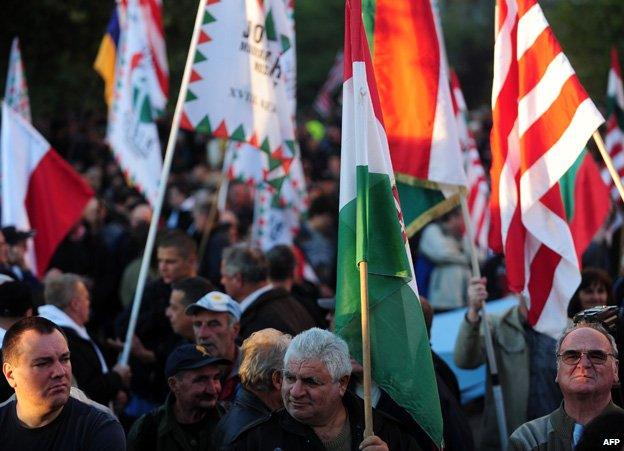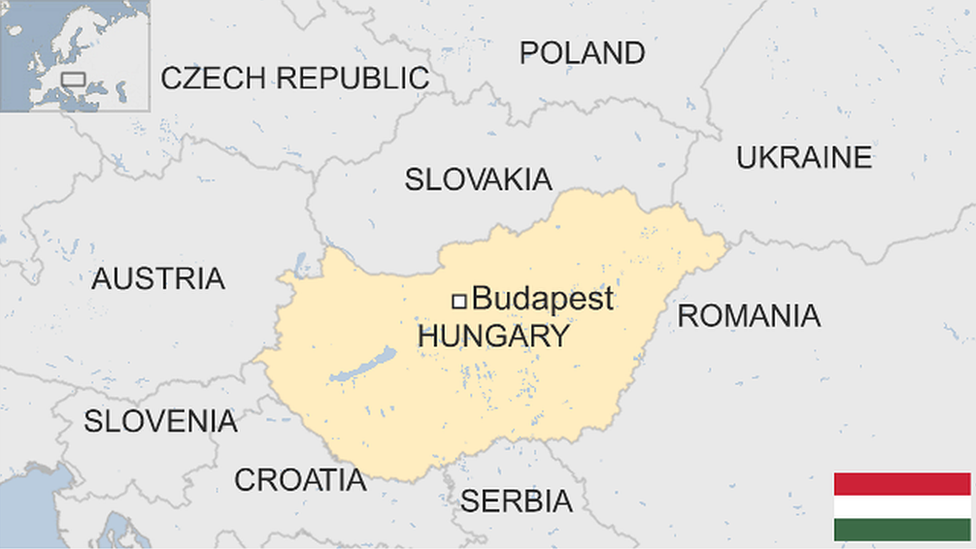Hungary's far-right Jobbik makes local election gains
- Published

Jobbik rally in Miskolc (2012 pic) - the party has tried to soften its image recently
The far-right Jobbik party in Hungary has made gains in local elections won convincingly by Prime Minister Viktor Orban's ruling nationalist Fidesz.
Jobbik came second in 18 out of 19 counties, ahead of the Socialists, as in the May European elections.
It won control of 14 towns and villages. The party has been accused of anti-Semitic and anti-Roma rhetoric.
Fidesz won all but six districts of the capital Budapest, where its mayoral candidate Istvan Tarlos was re-elected.
It has a two-thirds majority in the national parliament and the local election consolidated its grip over the country's politics. It came top in nearly all the big towns and cities.
Jobbik is the third-largest party in Hungary's parliament and has three MEPs. It has tried to soften its image recently, but remains committed to defending conservative Hungarian values and thwarting integration of Roma communities, many of whom are desperately poor and marginalised.

The BBC's Nick Thorpe in Budapest writes:
"From 2018, Jobbik will govern this country," Jobbik leader Gabor Vona told cheering supporters in Budapest as the election results came in.
But he faces an uphill task to overtake Fidesz. His main problem is that Prime Minister Orban has stolen most of his Eurosceptic clothes.
Jobbik did well in this election, but not as well as it hoped. In 18 of 19 counties, it came second to Fidesz, proving that it now has nationwide support.
In the countryside, Jobbik won five towns and nine villages, up from one town and three villages in 2010. Most spectacularly, it won narrowly in the northern industrial town of Ozd, which has a large Roma population.
Jobbik's initial success was largely based on its ability to tap into widespread fear of the Roma in the Hungarian countryside.
In all three elections this year - parliamentary, European and municipal - it has considerably toned down its rhetoric. It is now trying to appeal to middle-class voters who have abandoned Fidesz, as their standard of living stagnates and their children leave to work abroad.

- Published25 May 2014

- Published4 June 2024

- Published4 April 2014

- Published14 February 2014

- Published1 September 2012
